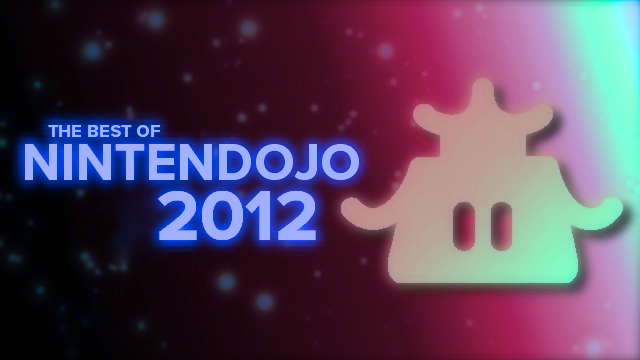|

After being involved in video games for almost three decades now, it’s hard to be surprised by much. Games that we think will be terrible usually are. Games that promise too much rarely deliver. Games that we are pretty sure are vaporware usually stay that way (or, in the rare exception, perhaps should have).
And when a developer says they have “no plans to bring that game to North America,” they mean it. And when a group of fans petition to get said game released in North America, it never happens. Fans have clamored since time immemorial for the likes of Mother 3 or one of those many unlocalized Tales DS titles, and they’ve been met with either rejection or silence. Nintendo, stubborn Nintendo, is as bad as any, especially in a Reggie Era that has long seemed more concerned with strategic marketing than longtime fan loyalty, worse still if the title is an original IP.
So when Operation Rainfall launched its campaign to bring Xenoblade Chronicles, The Last Story, and Pandora’s Tower to the States, I wasn’t a believer. Don’t get me wrong — I loved the idea of bringing them stateside, and was one of the earliest members of the gaming press to interview the people running the campaign. I thought Xenoblade in particular was more than worthy, as it is possibly the greatest RPG I’ve ever played. Heck, I even composed a letter to Nintendo myself.
Yet in the same article that I lauded Xenoblade’s greatness, I expressed great pessimism about its stateside prospects. The summer came and went with no sign of it or the other Rainfall titles, with Nintendo of America infamously prohibiting Nintendo of Europe from displaying Xenoblade at E3 2011. Rainfall’s proverbial pounding of Nintendo through social media, e-mail, and courier mail seemed to be falling on deaf ears, and I had every reason to think that the window had passed and Nintendo had moved on to Wii U.
In that context, Operation Rainfall has violated the laws of gaming physics. Nintendo is not supposed to change its mind. JRPGs aren’t supposed to come to North America months after it’s clear they won’t be. Fan pleadings aren’t supposed to sway the mind of a calculating marketing fanatic like Reggie Fils-Aime. And yet Nintendo did appear to change its mind. At least two JRPGs, Xenoblade Chronicles and The Last Story, are coming to North America this year. And since all decisions at NOA go through Reggie, he appears to at least have his blessing on the move.
This begs the question: what on earth happened?
We may never truly know the answer to that question. Nintendo of America’s omertà is serious business, with very little matriculating out of the halls of its Redmond, Washington headquarters. That said, we have some circumstantial evidence which may allow us to at least speculate on the basics.
First of all, did Nintendo really change its mind, or were they always planning to release this in North America? I think the evidence suggests that Nintendo of America had a genuine change of plans. Had Nintendo of America planned on releasing this game in the U.S. to begin with, localization would almost certainly have involved American actors rather than British ones (and their associated colloquialisms) and at least one of the games would have been published in last fall’s dry time rather than this spring, both to fill a gap and to head off people (like me) tempted to import.
It is also possible that Reggie and Co. were simply going to take a wait-and-see attitude to European sales before committing to publishing stateside. Does that mean that good sales would have guaranteed a North American launch absent Operation Rainfall? Again, no way to know, but if I’m a betting man I think the answer is no. Further fuel to this is provided by the simple fact that Nintendo of America has engineered the release of The Last Story here before much meaningful sales data on the game in Europe has been established.
It is my belief, then, that Nintendo originally had no plans to bring the JRPGs to America but was swayed in part by a combination of the fan deluge and sales that at least showed some modicum of respectability. But even those factors enough might not have made it happen were it not for two companies that deserve an assist.
The first is GameStop. Yes, evil GameStop, that cesspool of overbearing suggestive sell and one of the most painful places to buy games because of it. For all the torture that comes from a simple GameStop transaction, the company has aided the cause by partnering with Nintendo as the only retailer outside of NOA itself to put the Xenoblade Chronicles on U.S. store shelves. Presumably GameStop is sharing in some of the financial risk, which no doubt makes the gambit more palatable to Nintendo (and if you want the bonus preorder you can enjoy the risk of venturing into GameStop to pick it up). My snarky references to the company aside, they deserve props for helping facilitate the presence of a great game in this country.
The other is XSEED Games. XSEED is, in some ways, the anti-company. Don’t get me wrong; they are as much about profit as anyone else — they have to be to survive. Yet they are also the company that will sometimes swoop in and save the life of a niche game otherwise destined for oblivion. They are the company that fans had been hoping against hope might publish at least one of Nintendo’s offerings. And in this case, they have, stepping in to publish The Last Story in North America.
Operation Rainfall would probably tell you at this point that work remains undone. Pandora’s Tower, after all, is still MIA in North America. Yet, in my mind, given that two excellent games have improbably come to America as it is, I have to be thrilled just where things stand.
My belief in miracles has been revived.




 ShareThis
ShareThis








I loved Xenoblade Chronicles and never have enough time to play it for long. The Last Story sounds great too, especially the story.